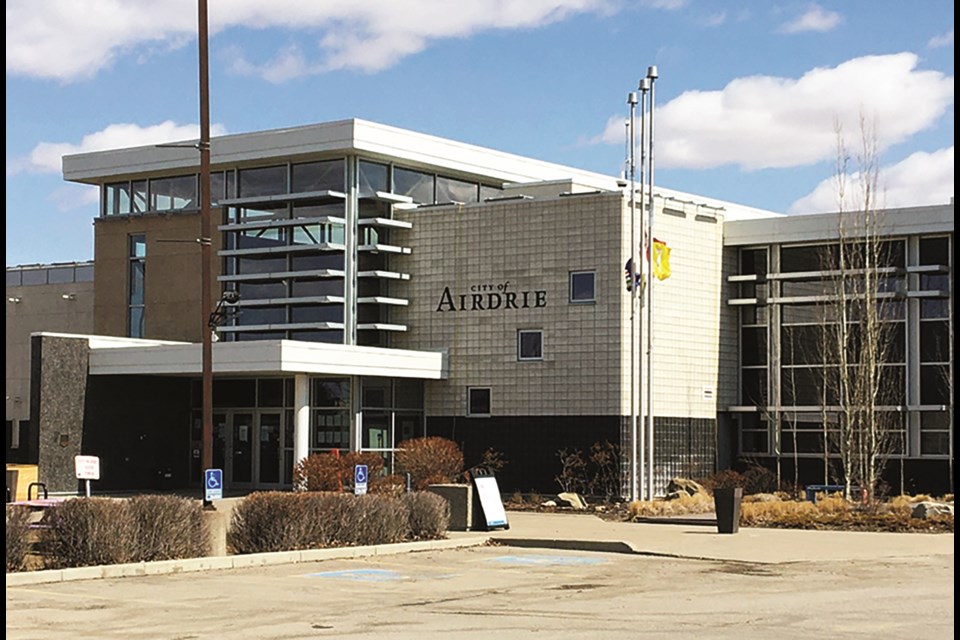Airdrie City council received an update May 4 on what the City’s social planning department is doing to support vulnerable populations during the COVID-19 pandemic.
Clay Aragon, team lead for Social Planning and Community Development, spoke about the psychological impact COVID-19 and the repercussions of the pandemic – social isolation, heightened anxiety and others – are having on community members.
“What makes COVID-19 so particularly alarming is that it’s detrimental to members of those social groups in the most vulnerable situations,” he said. “It continues to affect people living in poverty situations, older persons, persons with disabilities, youth, indigenous people and people of colour. In broader society, COVID-19 is changing our social norms.”
Aragon touched on how the pandemic has also impacted people who have never experienced vulnerability in the past.
“People who typically need support now are not necessarily the same people who needed it before,” he said. “People lost their jobs, they’re socially isolated and they would have never expected that to be them. That changes the social dynamics in our community.”
To help these people, Aragon said the City’s Emergency Social Services (ESS) plan is based on the principle that vulnerable populations need to be supported first to prevent further crisis.
- INTERACTIVE MAP: See the latest COVID-19 statistics across Canada by province/territory on our interactive map.
“For example, if you had no means of accessing food supplies…you might not follow self-isolation orders,” he said. “Why? Because your basic needs aren’t being met, and you’ll try as much as you can to get access to those needs, regardless of what restrictions are out there.”
According to Aragon, ESS created a community care plan, which was activated March 18. The plan provides psychological and social supports for people who are socially isolated due to COVID-19.
“Social planning through ESS led to the co-ordination of the Community Care Co-ordination Centre (CCCC) to ensure community social response, including health responses from a mental health perspective, are efficient in meeting the needs of vulnerable populations,” he said.
An example of this work, Aragon said, was helping Airdronians who do not have internet access apply for federal government relief programs.
CCCC meets every week, Aragon said, to share updates and learn more about what local agencies and organizations are doing in response to COVID-19. The group works to ensure there is no duplication of services being offered in the city.
One tool CCCC has developed is Help Seeker – an online platform, with a location-based service that allows residents to find the closest, most relevant service for their needs with complete privacy.
“This really helps, especially if you look at domestic violence in our community,” Aragon said. “Reading or writing something down on paper might not necessarily be the safest option. Having something like this on your phone…allows anonymity for people who need to access that resource.”
Communicating with residents throughout the pandemic is crucial, Aragon said. He noted the municipality’s public messages should contain three elements: direction giving, meaning-making language and empathetic messaging. He used the daily briefings of Alberta’s chief medical officer, Dr. Deena Hinshaw, as an example of this type of truthful but positive messaging.
“[It] creates a sense of hope for a lot of people, and it creates that resilience to cope during difficult times,” he said. “It’s about how you message people to say, ‘Keep doing what you’re doing,’ but in a way that is not so much about direction-giving – these messages are what help people change behaviour and lessen anxiety.”
Following Aragon’s presentation, Coun. Tina Petrow asked about the Airdrie and District Community Foundation and the role it is playing during the pandemic. She also wondered about the possibility of centralizing community donations more locally.
“A lot of businesses in our community have the capability to donate, but when there are so many organizations, sometimes it is tricky to figure out who to give money to,” she said.
“When I talk to Airdrie and District Victims Aassistance Society or Volunteer Airdrie, [I hear] they are having trouble soliciting donations at this time, because the first charity you generally think of in an emergency crisis is a food bank, right? Which is vitally important, but [there are other] organizations having trouble accessing donations." she said. "If we have an opportunity to centralize that and have one easy place for people for people to donate, I would love to see that happen in the future.”
Aragon responded there will be a new community emergency resource fund that will be released by the federal government.
“It’s a fairly big chunk of funding that will come out for non-profit social agencies,” he said. “What we’ve noticed as a trend in government, both federally and provincially, is their delivery system is through larger foundations – the United Way is one. Another one is Red Cross Canada and the third group is the Community Foundations of Canada (CFC).”
As the Airdrie and District Community Foundation is a member of CFC, Aragon said it has been contacted by the parent organization to see if it has the capacity to provide some of that federal funding locally.
Scott Strasser, AirdrieToday.com
Follow me on Twitter @scottstrasser19


